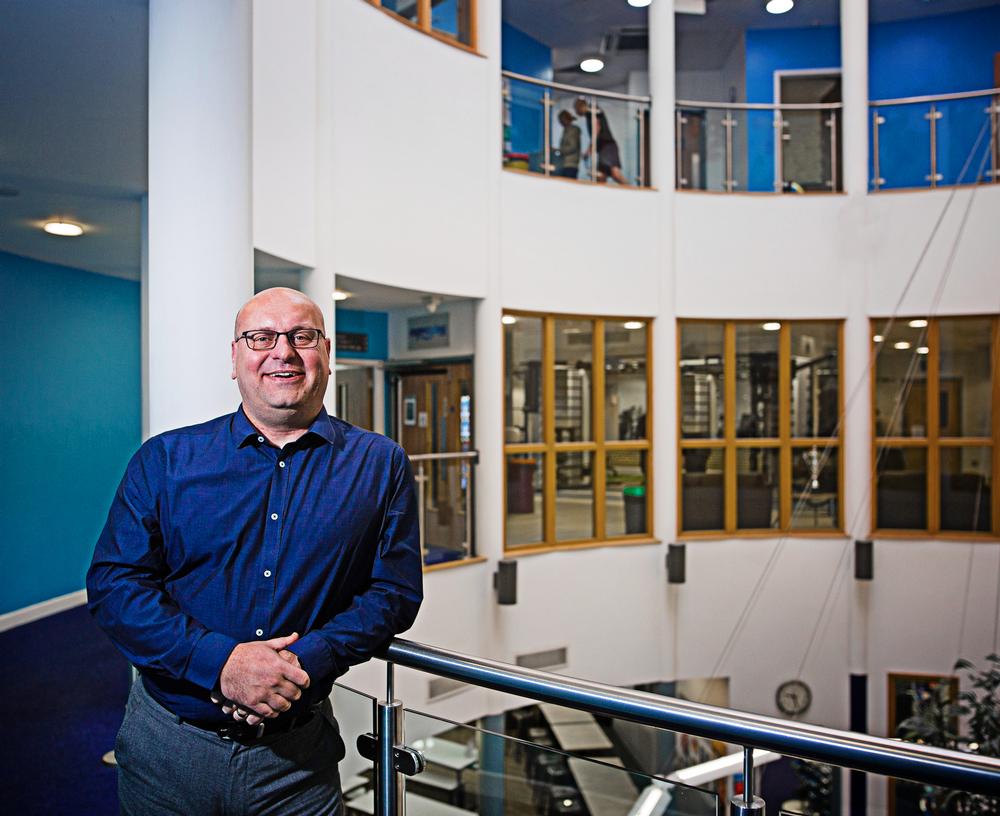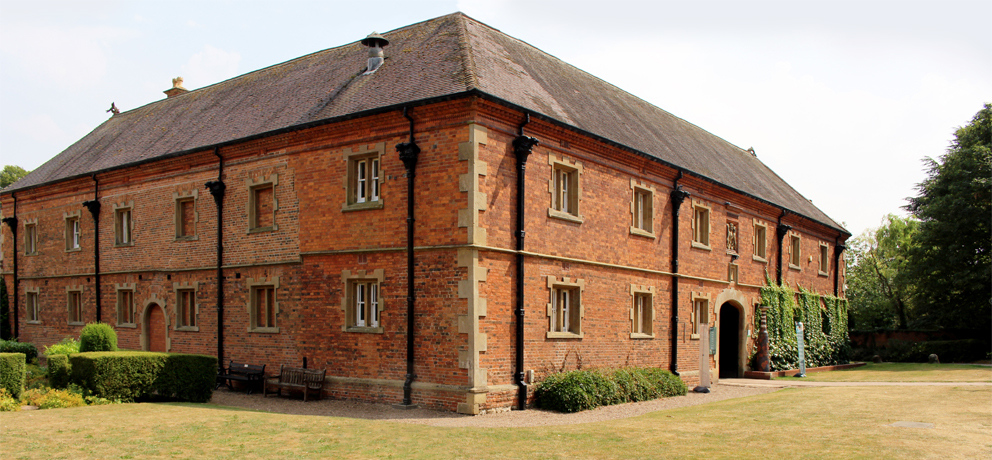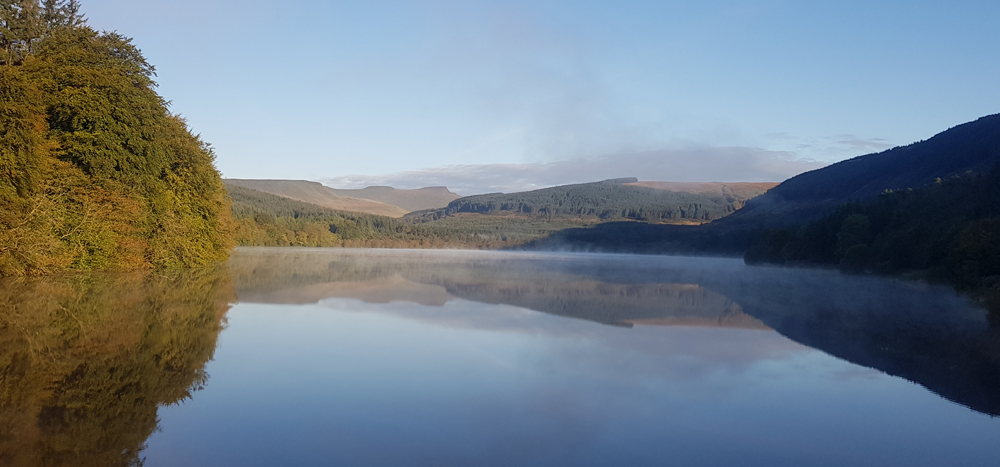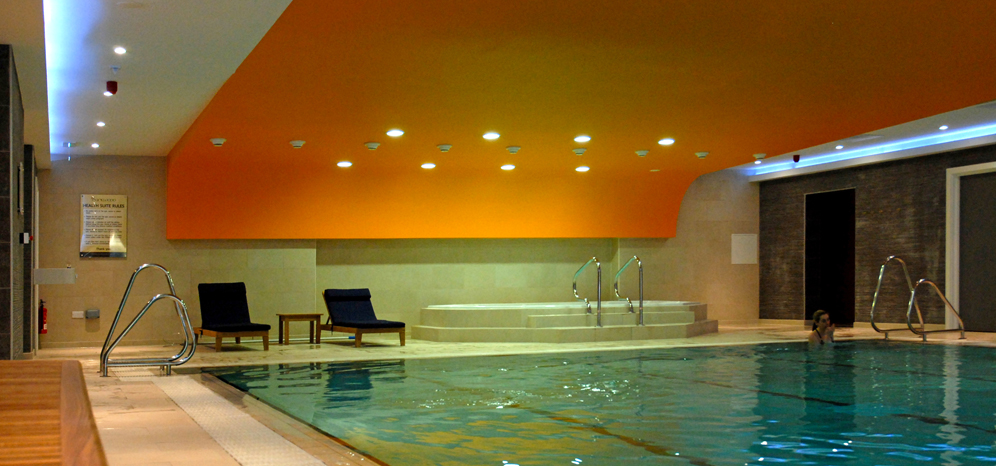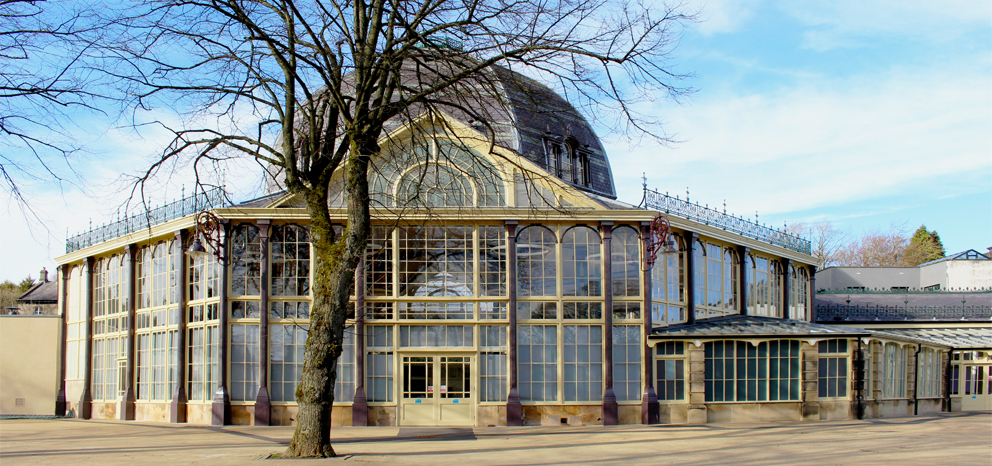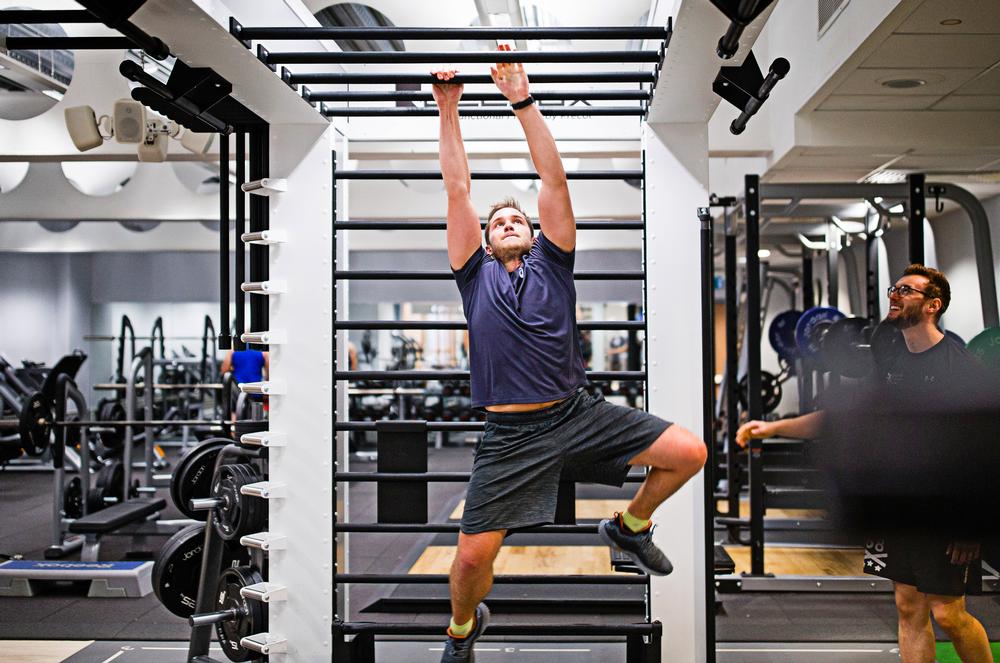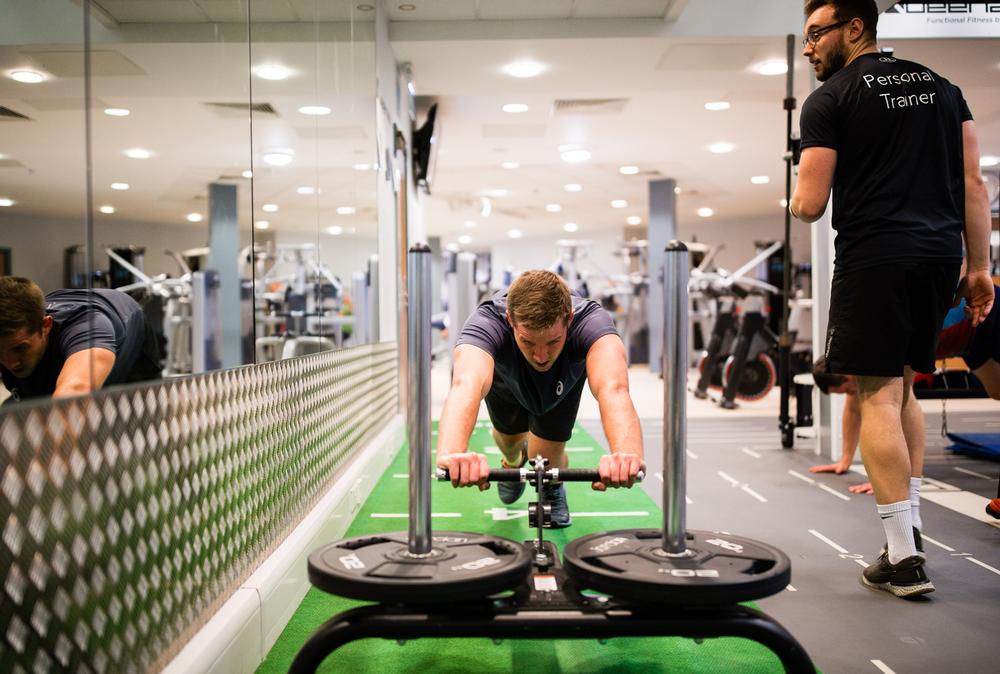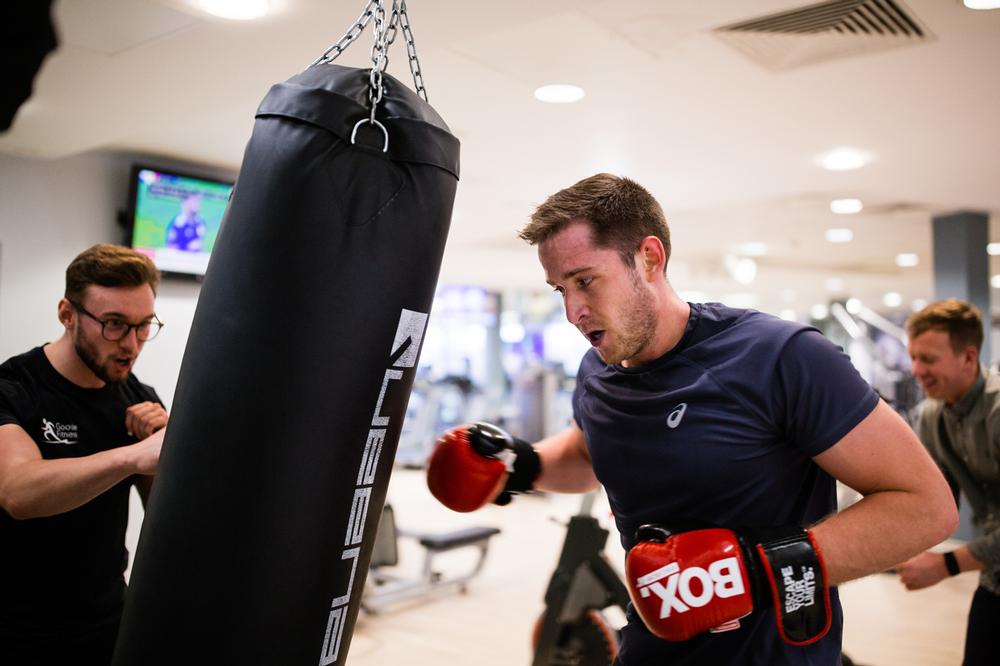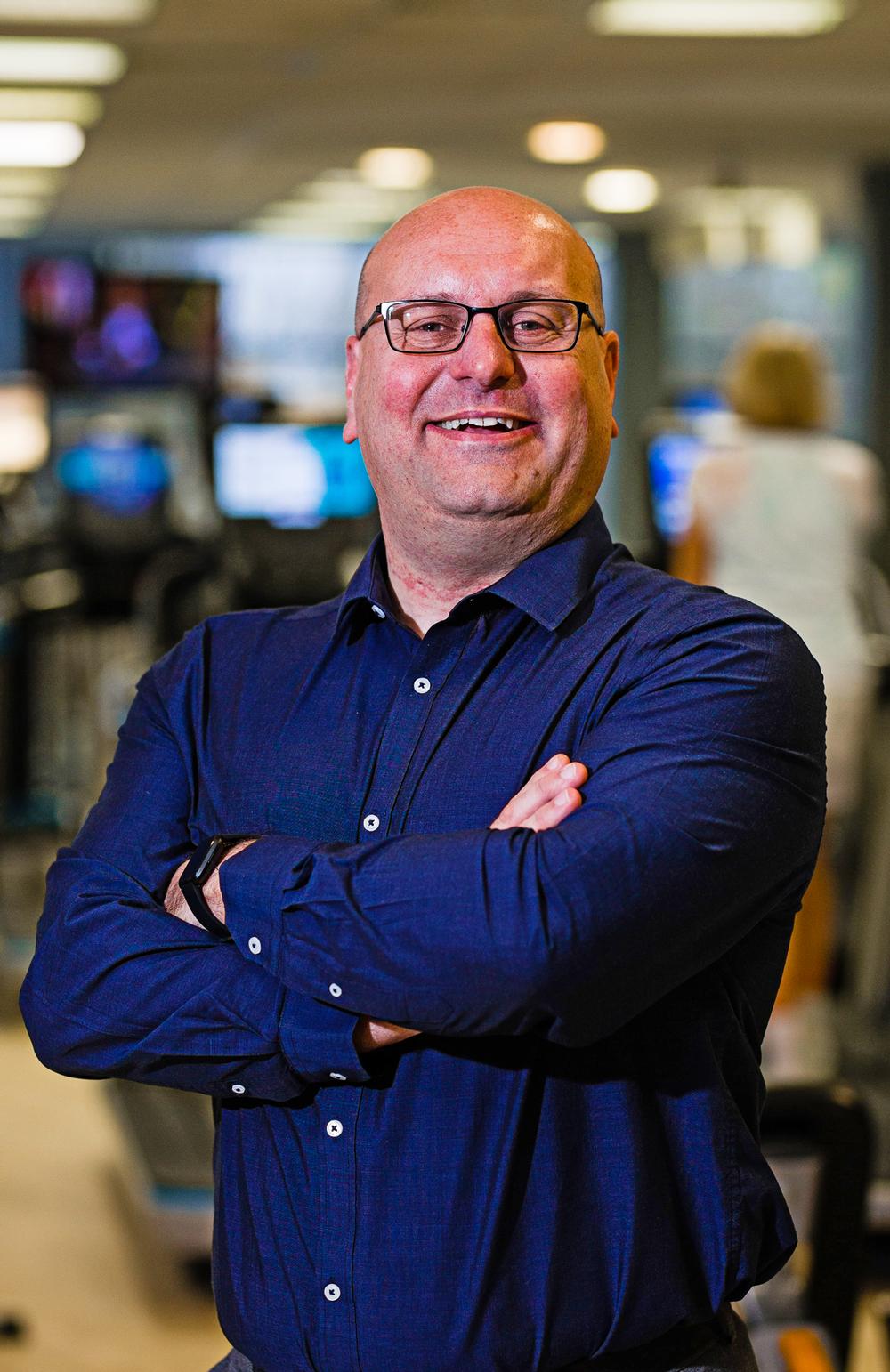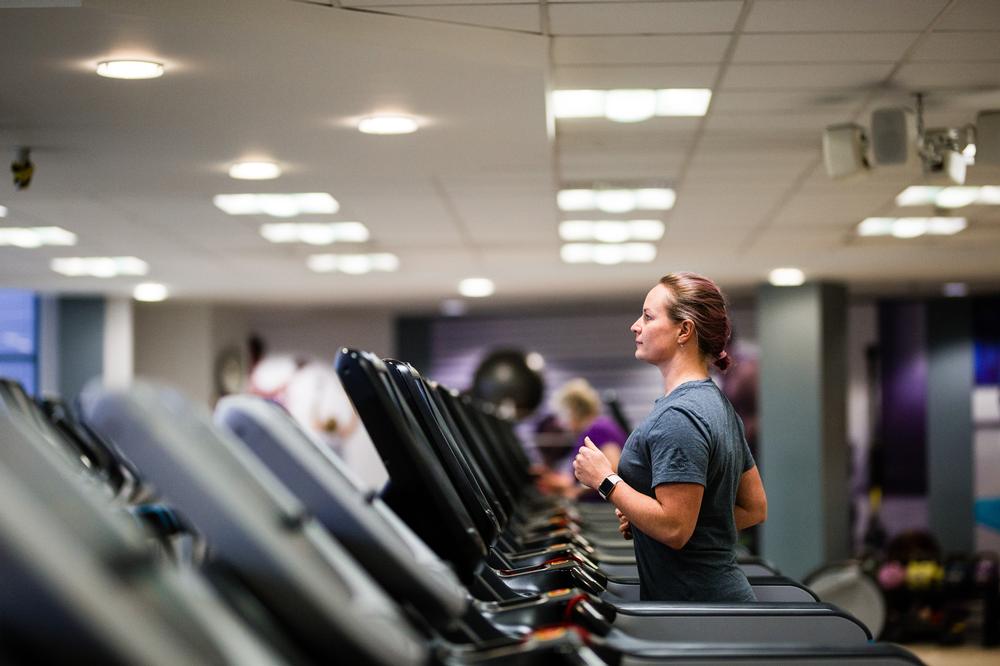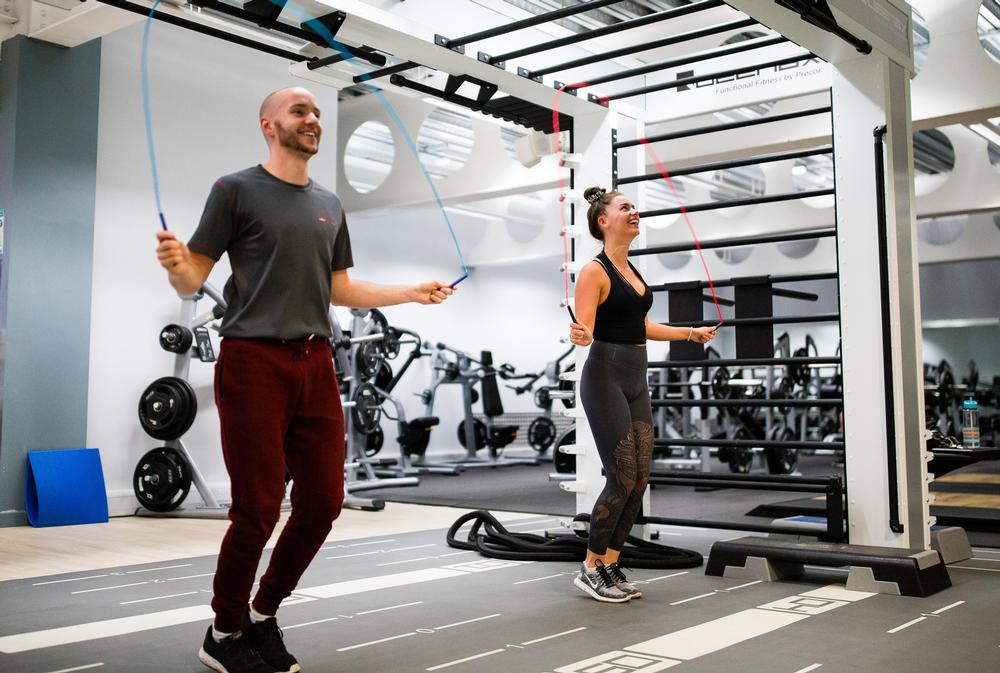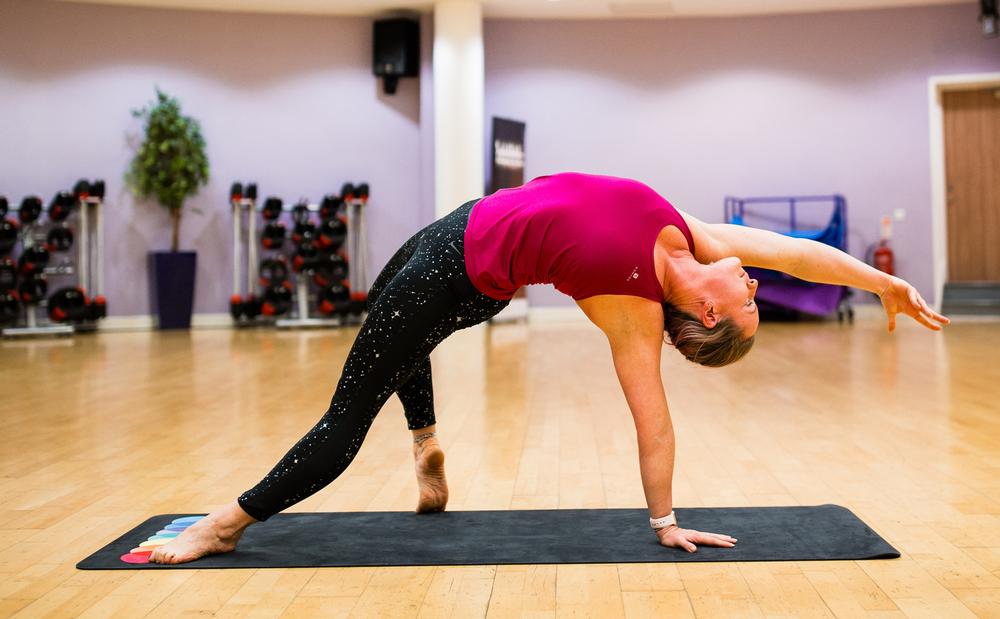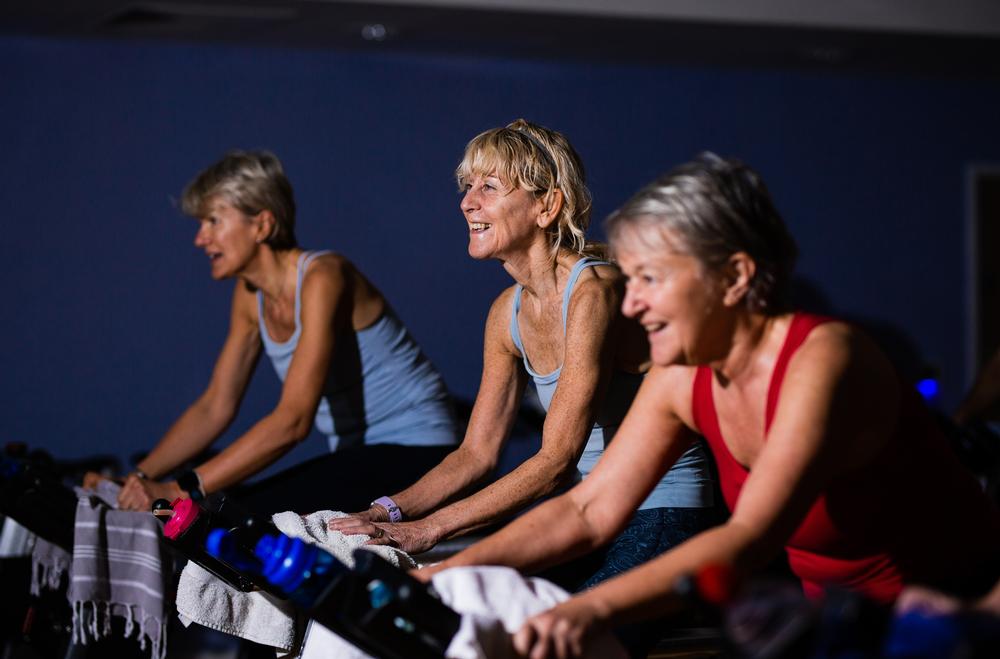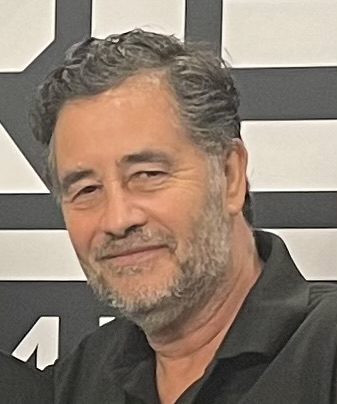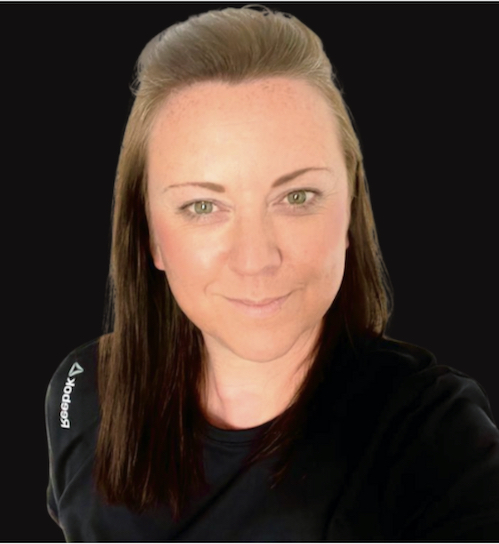W e want our members to love what they do when they visit our facilities,” says Glen Hall, MD of Parkwood Leisure. “We want them to feel welcome and part of a community and believe that making connections and having fun are key ingredients in happier, healthier lives.
“We all need to move more and the easiest way to do so is to enjoy the activities you partake in,” says Hall.
“Parkwood goes beyond facilities – we believe people want results, not just treadmills and weights, and our focus is on the process required to achieve the outcomes our members desire.
“Whatever their experience, lifestyle, goals, likes and dislikes, we work with them to build workouts that complement their lifestyle and ensure success,” he says.
“Our ‘member journey’ is a well-thought-out plan and process that we’ve integrated across all our sites and it’s central to members achieving their goals,” says Hall.
Parkwood’s member journey begins from the very first interaction with the company and continues throughout the duration of the membership with a frequency designed to suit each individual member.
“Specifically in relation to fitness, we continue to work with our members on an ongoing basis,” says Hall. “This includes a programme of structured appointments that can continue for the duration of a membership for those who require it.
“Each member is paired with a dedicated instructor to ensure continuity. We need to build relationships with our members and care about their successes; supporting them for as long as possible to give them the best chance of achieving their goals.
This level of service is offered at a keen price point: “We have a diverse range of sites, but the majority sit within the mid-market (around £35 a month),” says Hall, “but we’re able to offer something different from many gyms that compete in this price range, because although the gym and fitness suite is at the heart of our centres, our fitness and physical activity offering extends beyond this, with swimming pools, multi-sport halls, courts (badminton, squash, tennis) and outdoor pitches also on offer.
“Our memberships allow visitors to access a range of physical activity provision. Not only is this important in meeting the needs of our wide-ranging member demographic, but it also enables us to bring more people into our sites to experience everything Parkwood has to offer,” he says.
The results of this broad offering are above the industry standard, with a 5.68 per cent attrition rate, says Hall, and the customer journey also driving down attrition rates.
Delivering this level of service involves making wider decisions across the business based on delivering on customers’ needs.
“Thanks to work we’ve done behind the scenes with regard to data management and reporting, we can now compare membership cancellation rates between those that engage in our member journey and those that don’t,” explains Hall.
“Our reports show members who don’t join our member journey are 83 per cent more likely to cancel their membership, highlighting the importance of our focus on personalising the entire member experience.”
Parkwood DNA
In September last year, Hall took to the stage at the annual Parkwood Leisure Managers’ Conference and presented his vision for the future of the business.
Entitled ‘Parkwood DNA’, the term refers to three key areas, as Hall explains: “Parkwood DNA is about driving innovation, nurturing people and achieving excellence. It’s about building on our values and what we’re good at, and combining this with forward-thinking innovation to move the business forward.”
“Our mission is clear; we want to create and maintain sustainable, lasting, effective partnerships that will help us to build happier and healthier local communities,” says Hall.
A key factor in achieving this is continuing development of the digital strategy, and a full review of the customer journey was recently conducted to determine next steps.
“We’re striving to be industry-leading but we’re not arrogant enough to think we know it all. The leisure industry is still way behind many others when it comes to customer journey and behaviours,” says Hall. “We’re working with software development provider ioStudios, learning best practice examples from other industries to revamp our digital services.”
Customer-first approach
With such a broad target demographic, leisure operators run the risk of isolating key segments of the market. “In the past, we’ve found ourselves focusing on those who are most active or engaged,” says Hall. “This is the case across much of the industry.
“We realised we needed to come up with ways to deliver a more consistent user experience across all touchpoints – in-centre, on mobile, on desktop and via our app – to engage better with those we’d been neglecting,” he says. “We also know we need to be making business decisions based on our customers’ needs, so ensuring we have the digital systems and processes in place to underpin this is vital.
“We’re now able to capture data from all our customers, which means we can be far more targeted with our marketing and successful in our mission to deliver facilities and services to support happier and healthier communities.
“In addition, we’re providing a far slicker customer experience in-centre, no longer using traditional membership cards but instead using QR codes on mobile to speed up access. We also decided against the use of fixed terminal kiosks, instead recognising the need to reduce queueing times by using mobile tablets in reception, which provides a concierge-style service,” says Hall.
Parkwood is also deploying AI to improve its service levels, as Hall explains: “We’re working on a machine learning content hub that will dynamically serve customers tailored content that specifically interests them.
“Our visitor demographic is vast, and this is just another way we’ll provide customers with personal, seamless experiences,” he says. “We’re looking to enrich our user communications and improve our entire customer journey, and the work we’ve done on our new member journey is testament to that.
“It’s been developed to help gym members achieve their goals, but at the same time it’s helping drive visitor frequency, increasing length of stay and ultimately improving member retention.”
A new app has also had a positive impact (read more on page 74): “The app has improved our class bookings process,” says Hall. “It incentivises members via challenges and rewards and also integrates with third party apps, so users can compile data from across their entire physical activity schedule.”
This level of operational change has been achieved as part of an overall review of the company, as Hall explains, saying: “We’ve experienced a period of transformation and change in the business in the last 12 to 18 months that has revolutionised the business.
“This has been underpinned by Parkwood 2.0 – a transformation project we initiated in 2018,” he says. “Now it’s time to use our new platform to take the business to the next level and offer the local communities we serve an improved customer experience.”
Parkwood 2.0 aimed to build on the heritage and successes of the company, by evolving its strategy, culture and processes to support medium and long-term success.
Hall was central to its creation and delivery in his previous role as operations director.
“The project was as much about conducting an internal review as it was about changing our customer-facing operations,” he explains. “We wanted to give managers of our facilities more autonomy and accountability, by investing in our staff and our processes to help drive improvement across the entire business.”
Data driven
So, what did this mean in practice? Hall continues: “This transformation focused on a number of key areas – one being data management; it’s a huge part of our business but it was clear we weren’t making it work as best we could. We had multiple data sources in the organisation but they were all in silos.
Subsequently, we’ve been working with CRM agency, Acteol, to introduce a new Single Customer View system to bring it all together to provide us with the information we need to understand our customers and make better-informed strategic decisions.
“We now have a dashboard for every one of our business objectives, which records, tracks and interprets all relevant data; not just real-time analysis of sales and expenditure control, but also any key metrics around our HR systems, accident and risk assessment analysis, telephone answering, and facility maintenance programmes. This will no doubt continue to grow and evolve over time, but already it’s having a hugely positive impact on our strategic planning.
“The entire organisation also transferred from Microsoft to Google. While initially challenging, this new platform has revolutionised the productivity of the business. Google has allowed teams to be completely mobile, with access to all software from anywhere and from any platform.
“In multi-site organisations, this versatility is so important and has been incredibly well-received by the operational team.”
Brand differentiation
For customers, there have been some notable changes, too. “The roll-out of our re-vamped consumer-facing brand – Leisure Centre, powered by leisurecentre.com – is the most significant of these changes,” explains Hall.
“What sets us apart in the market from other operators is that we run local community leisure centres, not national chains. So we made the strategic decision to provide our sites with a white label solution and lead with the Leisure Centre brand; it’s the name of the local leisure centre that people in the communities we serve feel an attachment to, and this way our facilities can retain their own identity and put themselves at the heart of their communities, which is something we aim to achieve across all our sites,” says Hall.
launching A new app
To coincide with the introduction of the refreshed brand, last summer, Parkwood also launched a new app for all Leisure Centre sites. “The app was a big investment for us,” says Hall. “The development process took longer than we’d expected, but we wanted to get it right. It seemed to me that some operators are introducing apps purely because other sectors have. However, the critical question for us was, does it improve the customer experience? We feel ours does.
“The additional time put into its development has created a product which is delivering the desired outcomes. Within eight weeks of launching, we’d had sign-ups from over 40 per cent of active members – those who have come to site within the last 20 days – and the number of people using the app is growing.”
Eighteen months on, is the business accomplishing what it set out to achieve with Parkwood 2.0? Hall believes it is: “Parkwood 2.0 has been a success; we’ve achieved tangible outcomes and put in place a foundation from which we can move on and for me, that’s the most exciting aspect,” says Hall.
Remembering the heritage
So, what’s next for Parkwood? Hall says that although the organisation has experienced a period of huge transformation, it’s important to look forward while being aware of legacy: “I believe that to forget our company’s history would be a mistake,” he says. “Successful companies don’t dwell on how they’ve got to where they have, but they do remember it. Our aim is to retain our core DNA but also to embrace innovation and ensure that this drives continued improvement.”
Family owned business
First launched in 1995 as Glendale Leisure, the organisation championed a new model of working by taking its broader Group expertise to the local authority leisure market and focusing on improving the effectiveness and efficiencies of leisure facility management. In 2002 the company became Parkwood Leisure and it remains a family-owned business today.
“Our heritage lies in sustainability; we continue to maintain astute cost management and adopt an operationally-led business model, while simultaneously embracing innovation and expressing an entrepreneurial spirit,” Hall explains.
A contradiction in terms? He doesn’t think so. “For some, the traditional values associated with a family-run business won’t scream innovation, because ‘cost control’ and ‘operations’ aren’t very sexy business terms! These values are incredibly important in our sector and form the basis of our success over the past 25 years, but this doesn’t mean we can’t also be progressive and dynamic.”
Parkwood’s people
There’s no denying the focus Parkwood has on customers, but what about the people behind the scenes? Hall says this is more of a priority than ever. “We employ 5,000 staff and our people remain at the core of what we do. From apprentices right up to board level, we offer the same opportunities to grow, develop and progress, so we keep the best people as long as possible.”
The organisation employs over 300 apprentices, in roles ranging from recreation assistant to central support staff. “Apprentices are important to our business, with the vast majority staying on past completion of their qualifications,” confirms Hall. “We offer level two apprenticeships from entry-level right through to an MSc Strategic Leadership course in partnership with Loughborough University.”
The operator also recently launched a recruitment drive promoting employment opportunities for people up to the age of 80, using testimonials from employees Bryan and Sylvia, who emphasise the importance of staying active and the positive impact it’s had on their ability to continue working into later life.
In line with the growing prevalence of mental health awareness in the workplace, the company has also introduced initiatives to help build a positive mental health culture, as Hall explains: “Our HR team has done some fantastic work here; all our HR managers are now qualified Mental Health First Aiders and last October, we launched mental health wellbeing workshops for all staff at junior management level and above.
“If our teams are happy, that goes a long way to making sure our customers are happy too.”
Operational efficiencies
Environmental issues are a priority as Hall explains: “With more than 100 sites, we place a lot of emphasis on reducing our carbon footprint and driving energy efficiency. Working within the ISO 14001 framework, our strategy and performance team has raised awareness among staff and introduced initiatives to improve our energy efficiency.
“As a result, we were shortlisted for two awards at last year’s Energy Awards. In addition to making environmental improvements, this has saved the business over £70,000 in the past two years.”
In 2019, Parkwood became one of the first operators to achieve ISO 45001; the new international ISO standard for Occupational Health and Safety Management Systems.
“The certification aims to help businesses provide a safe working environment for employees and visitors,” explains Hall. “We made the commitment to achieving certification, not only to ensure we were compliant with industry standards, but also to drive continuous improvement at all levels of our operation.”
Parkwood has also developed its own internal training opportunities led by health, safety and compliance manager, Peter Mills. These include e-learning modules, a Pool Managers’ Academy and RoSPA-accredited health and safety training.
“Peter has been a driving force in health and safety in the sector for many years,” says Hall. “Having him on the team has been invaluable. Our systems are robust, which ensures a focus on a positive health and safety culture throughout the organisation.”
Growing the business
“Our approach to business development is increasingly considered,” reflects Hall. “The volatility of the leisure market has been well documented and as a family-owned business we’re taking a more long-term, sustainable view. We also diversified our business model long before other operators.
“For many years we were less active in the open procurement market; we felt that unrealistic financial expectations were being set by local authorities, which resulted in many operators ending up managing facilities on unsustainable terms.
“However about 18 months ago, we noticed a radical slow-down in aggressive bid submissions and seized the opportunity to bid for contracts where our model was competitive.
“This proved to be a good move, as 2019 was our most successful year for business development, with 18 new sites secured across 10 authorities,” says Hall.
Among the new contracts are multi-site deals with Broughton Astley Parish Council, High Peak Borough and Erewash Borough Councils, plus a 25-year lease to run the Riviera centre in Torquay.
Also awarded was a contract to run the new Braywick Leisure Centre, Maidenhead – set to become one of the country’s biggest when it opens in September – and a Design, Build, Operate and Maintain (DBOM) project for North Devon’s new leisure centre, construction of which starts this spring.
In the visitor attraction sector, Parkwood also secured contracts to run two visitor attractions, Plantasia, an indoor tropical rainforest experience in Swansea, and the Pavilion Gardens, a conference facility in Buxton, Derbyshire.
“It’s a highly competitive market and we want to focus our efforts on what we do best, says Hall. “While leisure facility management remains at our core, our experience means we’re able to extend our services into the broader leisure industry.
“Our expansion not only consolidates and strengthens our position in the sector but also, diversifying our portfolio enables us to engage with even more communities through physical activity, social, cultural and leisure provision.
“We’re ultimately trying to support happier, healthier communities, and at the heart of this remain the core values we started out with 25 years ago.”








